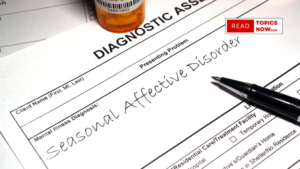
Business Licensing: Everything You Need to Know

Business Licensing: Everything You Need to Know
Starting a business involves more than just having a great idea and a solid plan; you also need to navigate the legal requirements that allow your business to operate legally. One of the most important steps in this process is obtaining the proper business licenses and permits. These licenses ensure that your business is compliant with local, state/provincial, and federal regulations. Whether you’re launching a small business in the USA, Canada, or the UK, understanding the requirements for business licensing is crucial to avoid penalties and legal issues.
In this comprehensive guide, we’ll break down everything you need to know about business licensing, from the different types of licenses you might need to how to apply for them.
What is Business Licensing?
A business license is a legal authorization granted by a government authority that allows you to operate a business within a specific jurisdiction. Business licenses are required at the local, state/provincial, and federal levels, and the exact requirements vary depending on the type of business you operate and where you’re located.
Licenses and permits can be broken down into different categories:
- Local Business Licenses: These are issued by city or county governments and are often required for businesses operating within a specific locality.
- State/Provincial Business Licenses: These licenses are issued by state or provincial authorities and often apply to businesses that provide certain services or operate within certain industries.
- Federal Business Licenses: These licenses are required for businesses that engage in activities regulated by the federal government, such as broadcasting, investment advising, or selling alcohol.
Types of Business Licenses and Permits
Here are the most common types of business licenses and permits you may need:
- General Business License: A basic license allowing you to operate your business within a specific location.
- Health Permits: Required for businesses that deal with food, beverages, or healthcare.
- Building Permits: If you’re renovating or constructing a building for your business, you may need a permit from local government.
- Home Occupation Permits: If you’re running your business from home, a home occupation permit may be required.
- Specialty Licenses: For businesses operating in regulated industries, such as insurance, legal services, or real estate.
- Employer Identification Number (EIN): Required by the IRS (USA), Canada Revenue Agency (Canada), and HMRC (UK) for businesses that have employees.
Why Do You Need a Business License?
Securing the proper business licenses and permits is a legal requirement for operating your business. These licenses ensure that your business complies with local, state/provincial, and federal laws, including health and safety regulations, environmental standards, and tax obligations. Operating without the necessary licenses can result in:
- Fines and Penalties: Operating without a license or permit can result in hefty fines and potential closure of your business.
- Legal Issues: Failure to obtain the necessary licenses can expose you to lawsuits, as some customers or clients may not be willing to do business with an unlicensed company.
- Ineligibility for Contracts: Many government contracts, loans, or grants require that your business be properly licensed.
- Reputation Risks: Customers and investors prefer to work with licensed and reputable businesses.
Business Licensing Requirements by Country
Business Licensing in the USA
In the United States, business licensing requirements vary by state, county, and city. The Small Business Administration (SBA) provides guidance on what you need, but it’s essential to check local and state laws to ensure compliance.
- Federal Licenses: While most businesses are regulated by state or local authorities, some businesses (like those involved in aviation, agriculture, alcohol, firearms, and broadcasting) need a federal license.
- State Licenses: Some states require businesses in regulated industries (e.g., healthcare, construction, real estate, and finance) to obtain specific state licenses.
- Local Licenses: Local business licenses are issued by cities or counties and typically require businesses to register in the area where they operate. These might include health permits, signage permits, and more.
For example:
- If you’re opening a restaurant in California, you need a health permit and possibly a liquor license if you plan to serve alcohol.
- In New York, businesses are often required to obtain a business certificate at the local level.
Steps to Obtain a Business License in the USA:
- Research the licenses required at the federal, state, and local levels.
- Submit the necessary applications.
- Pay any required fees.
- Keep your licenses current by renewing them as required.
Business Licensing in Canada
In Canada, business licensing is primarily governed by the province or territory where the business operates. Federal business licenses are rare, but some industries (such as telecommunications, broadcasting, and transportation) may require federal permits or regulations.
- Provincial Business Licenses: Each province and territory has its own business licensing requirements. For example, in Ontario, businesses need to register with the Ontario Business Registry.
- Municipal Licenses: Many municipalities (cities or towns) also have their own business licensing requirements. For example, a business operating in Toronto must obtain a business license from the city.
Steps to Obtain a Business License in Canada:
- Research the specific business licenses required for your province or territory.
- Complete the necessary paperwork with the relevant provincial or municipal office.
- Pay fees for business registration and licenses.
- Renew licenses as needed.
Business Licensing in the UK
In the United Kingdom, business licenses are regulated by local authorities and specific industry regulations. There’s no overarching national business license, but certain industries require specific permits and registrations.
- Register with Companies House: If you’re setting up a business in the UK, you must register with Companies House if you form a limited company.
- Local Council Licenses: Depending on your business type, you may need a local council-issued license. For instance, if you plan to sell food or alcohol, you need the relevant licenses.
- HMRC: Businesses must also register with HMRC for tax purposes, including VAT, PAYE (if employing staff), and National Insurance.
Steps to Obtain a Business License in the UK:
- Register your business with Companies House (if applicable).
- Apply for specific licenses (e.g., health and safety, food handling, or alcohol) from your local authority.
- Register with HMRC for tax purposes.
- Ensure compliance with health, safety, and environmental regulations.
FAQs About Business Licensing
1. Do I need a business license if I’m self-employed?
Yes, even if you’re self-employed, you may still need a business license depending on your location and the type of work you’re doing. For example, if you’re offering a service that requires a certification, such as a health-related service, you’ll need the appropriate license.
2. How do I know which business licenses I need?
To determine which licenses you need, consult your local government website or use an online business license search tool. You can also speak with a local business attorney or accountant who is familiar with licensing requirements in your area.
3. How much does it cost to get a business license?
The cost of a business license varies greatly depending on your location and the type of business you operate. Fees can range from a few dollars to several hundred dollars. Some municipalities offer fee schedules on their official websites.
4. Can I operate without a business license?
Operating a business without a license is illegal in many jurisdictions and can result in fines, penalties, or forced closure of your business. Always ensure that your business is properly licensed.
5. How long does it take to get a business license?
The time it takes to get a business license varies by jurisdiction. In some cases, it can take a few days, while in others, it may take several weeks to process your application, depending on the complexity of the license required.
6. Can I apply for a business license online?
In many countries, including the USA, Canada, and the UK, you can apply for certain business licenses online through government portals or business registration services.
Conclusion
Business licensing is a critical step in legally operating a business, whether you’re in the USA, Canada, or the UK. While the specific licensing requirements may differ depending on the country, state/province, and local government, one thing is clear: obtaining the right licenses is essential for staying compliant and avoiding legal issues.
Take the time to research the necessary licenses and permits for your business and ensure that all documentation is in order before you start operations. By doing so, you’ll set yourself up for success and avoid unnecessary legal headaches down the road.

SEO-savvy content writer and technical specialist with over 5 years of cross-industry experience. MBA graduate dedicated to crafting impactful narratives for your brand.






